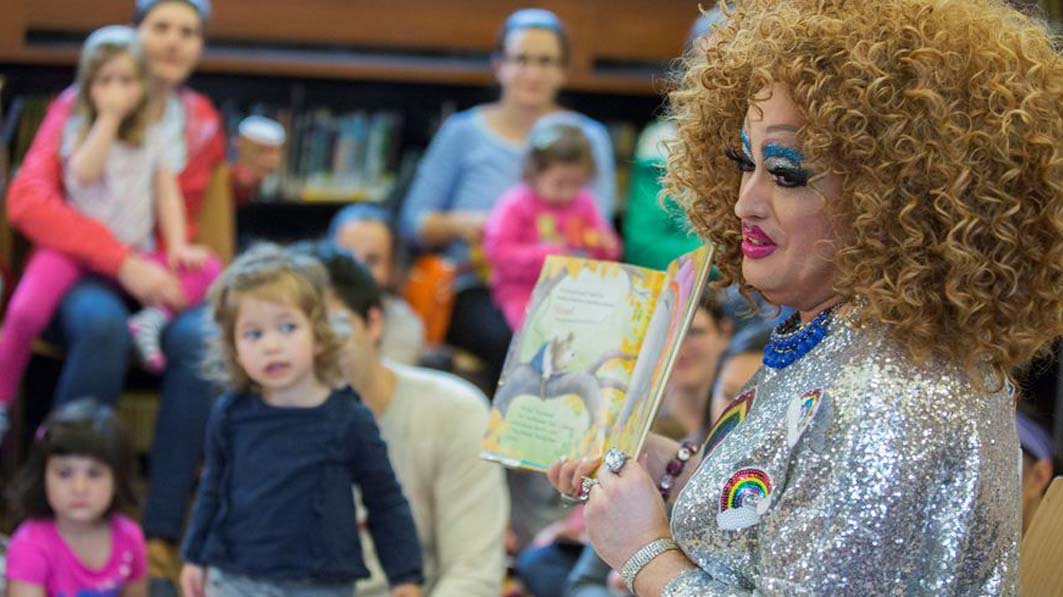The growth of “drag queen story hours” at libraries across the country is a frightening phenomenon. The events feature men – dressed and made-up as exaggerated, hyper-sexualized caricatures of women – reading books to small children and their parents.
They also could be dangerous, since some of the drag queens used for library events are convicted criminals. Many also moonlight in strip clubs and other adult related venues. It seems like the nation’s public libraries, in order to maintain the illusion of inclusivity, are not doing enough to protect the minds and hearts of young children.
Libraries are places of imagination and knowledge but have also become reflections of the growing “progressive” culture. The inclusion of drag queen story hour is a great example. Started in 2015 by Michelle Tea, an author of several queer books, the event was quickly adopted by other libraries.
Drag queens reading to children during a story hour is problematic enough, adults should not be sexualizing and confusing young children, but libraries don’t do near enough to evaluate these drag queens. Organizations committed to calling out these potentially damaging events have discovered extremely questionable behavior on the part of the drag queens and criminal convictions that were completely overlooked.
Here are just some of the examples:
October 2019 – “Honey, if you’re going to act like a lady, you first need to start sitting like one.” That’s what Anne Taylor, of the website Caffeinated Thoughts, wrote after witnessing a drag queen at a local library in Minnesota. She says a young man in a mini-skirt sat “down in a chair before several preschool-aged girls with his legs spread wide, exposing his nylon covered crotch in front of children sitting at eye level.” The young man is reportedly a recent high school grad who also moonlights as a stripper.
August 2019 – A drag queen named “Miss Kitty Litter,” has been convicted of prostitution and has several questionable social media posts that imply he may still be in that profession – or at the very least supportive of it. Miss Kitty Litter has read for the Austin Public Library system.
July 2019 – Multnomah County Library’s drag queen story hour got physical, literally. The drag queen allowed children to “lay” across him with fully body contact. In a different situation, for example if the man was a priest or a teacher, he would likely be under investigation or up on charges.
June 2019 – Renton, a suburb of Seattle, held its own drag event, but this time it was for teenagers. Perhaps the most disturbing aspect of the whole thing was the plan to raffle off a breast binder for young women who believe they are men.
April 2019 – In Houston, Texas, the public library was forced to apologize after letting a drag queen assist during story hour who was a convicted sex offender. The man’s crimes had been against young boys, and authorities consider him a high-risk offender.
It’s bad enough hosting a drag queen story hour, where small children are exposed to sexually confusing messages. But what are our public libraries doing to protect young children from men who, in some cases, are convicted criminals?
Sadly, I’m not too surprised. As a young teenager, my first job was at the local public library, which I loved. But there was a man who would come in frequently and use the library’s computers to look at pornographic pictures, which at that time was rather tame compared to what you can access now. Although I reported it, I was told that there was nothing the library could do since he was on a public computer and it was his right to look at what he wanted. If I was uncomfortable, then I could avoid looking.
That was more than 15 years ago. So even then, it was supposedly a man’s right to expose a young female employee, children and others at the library to pornographic images because he could use the computer how he wanted. Now, it’s even worse, as parents knowingly bring their young children to these events hosted by libraries.
Although I have a huge passion for books and libraries, it may be time to reassess what’s taking place in these public spaces with young children. Clearly, some libraries and librarians, and some parents, have no desire to protect children, and that’s a problem.
Photo by Mary Altaffer






